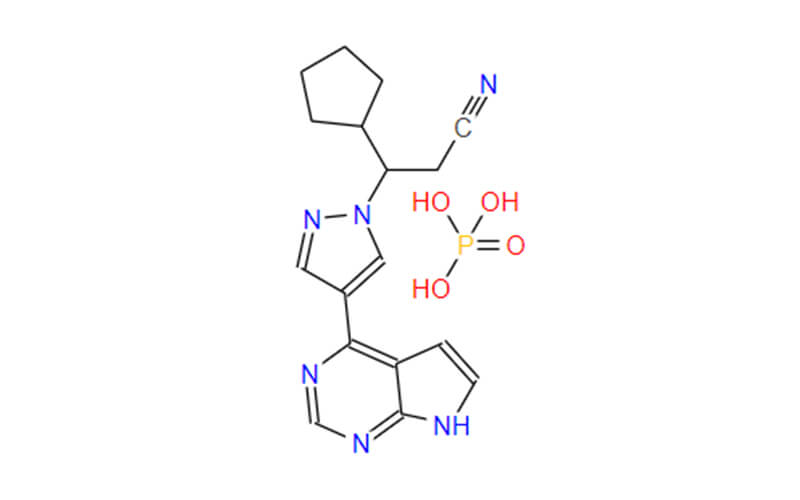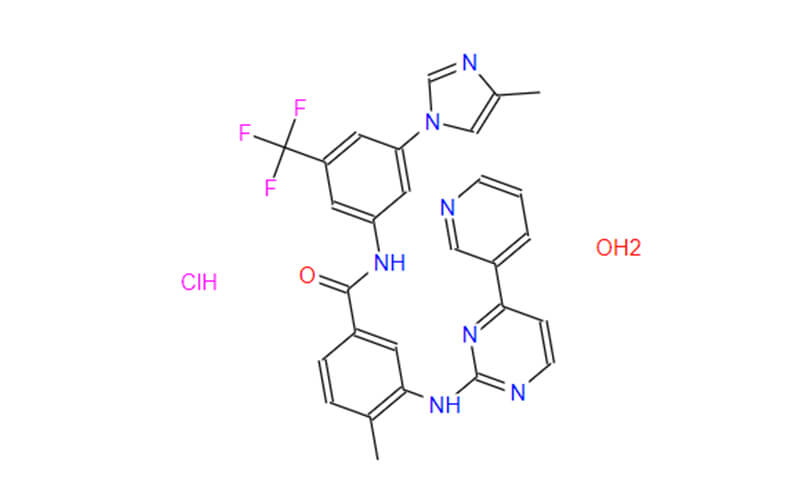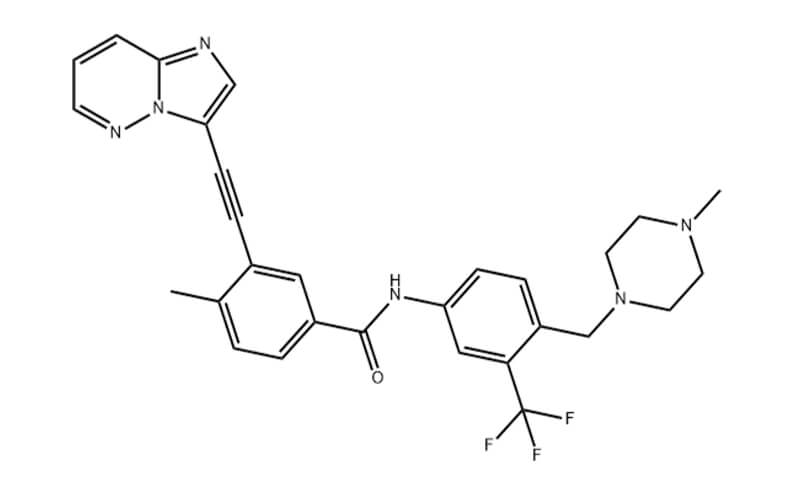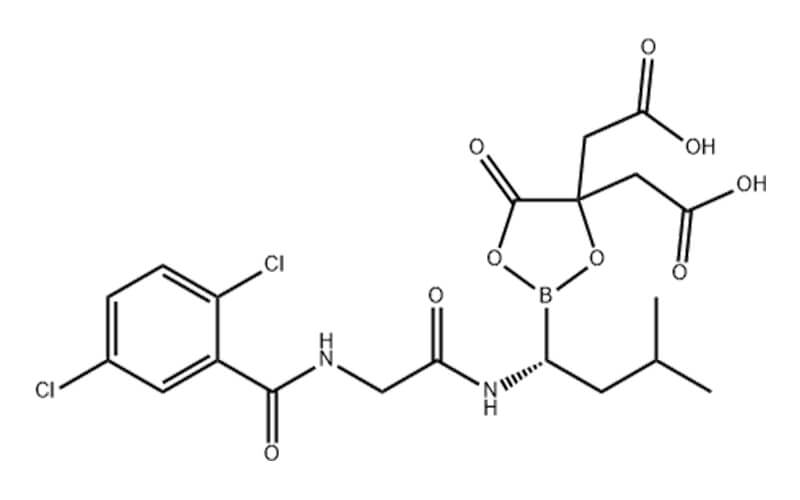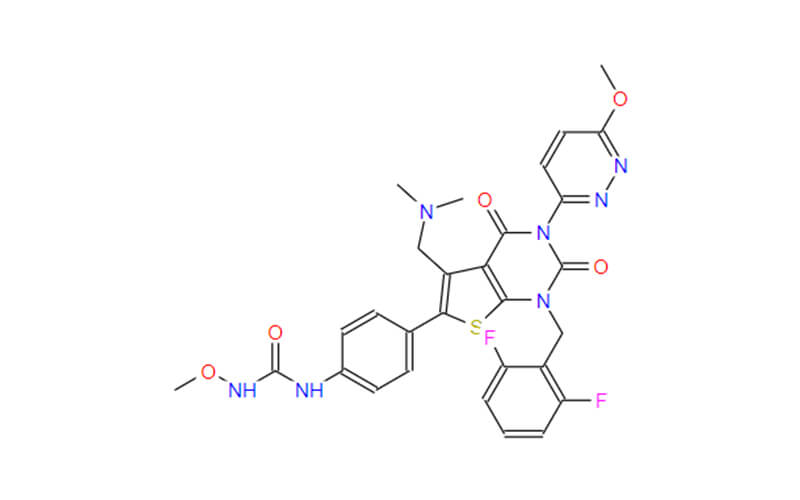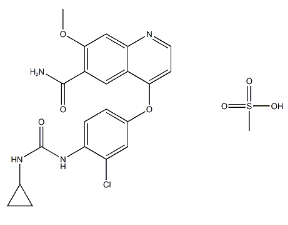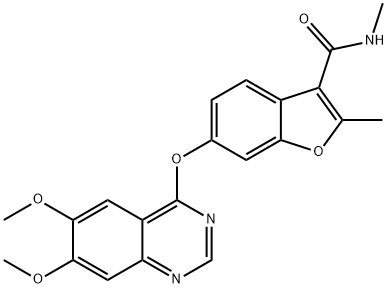The Difference Between Dabigatran Etexilate Mesylate and Pradaxa
Blood clots are gel-like substances that form in the bloodstream. While they play a crucial role in stopping bleeding after an injury, clots can also be dangerous if they develop in healthy blood vessels. These abnormal clots can block blood flow to vital organs, potentially leading to heart attack, stroke, or other serious complications.
Anticoagulant medications, also known as blood thinners, are used to prevent blood clots from forming. They work by interfering with the body’s natural clotting process. There are different types of anticoagulants, each with its own mechanism of action and uses. This article will focus on a specific type of anticoagulant called dabigatran etexilate mesylate, also sold under the brand name Pradaxa.
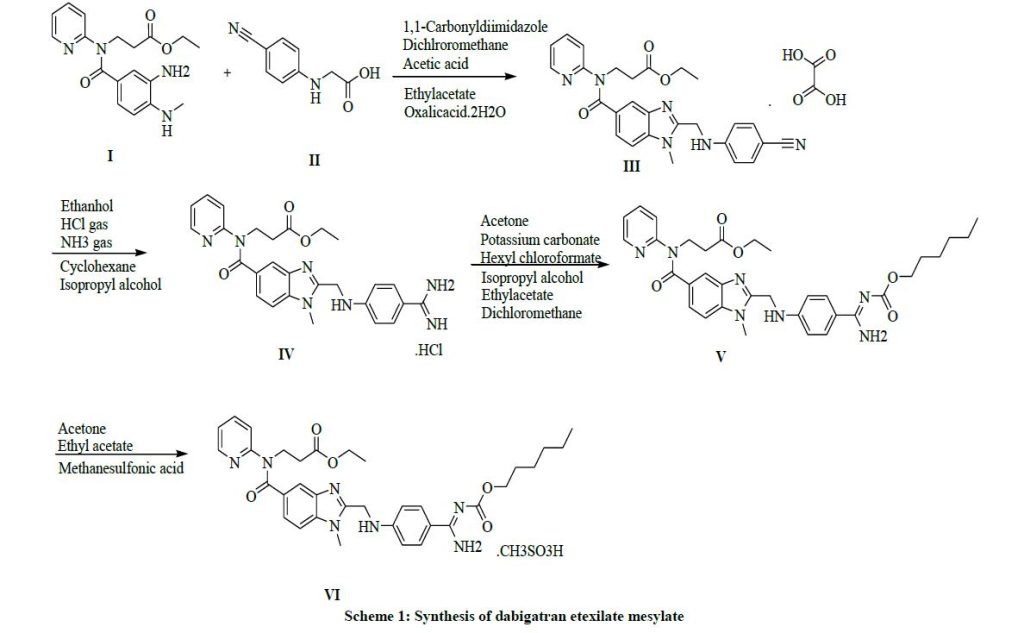
Dabigatran Etexilate Mesylate: The Generic Version
Dabigatran etexilate mesylate is the full chemical name assigned to a specific medication. This medication falls under the classification of anticoagulants, which are drugs that help prevent blood clots from forming. Dabigatran etexilate mesylate is available in a capsule form and can only be legally prescribed by licensed medical professionals, such as doctors or physician assistants.
Here are some additional details about generic medications in general:
- Generic medications are approved copies of brand-name drugs. They must meet the same strict standards for safety and effectiveness as their brand-name counterparts established by the Food and Drug Administration (FDA).
- Generic medications typically cost significantly less than brand-name drugs. This is because the manufacturer of the generic drug does not need to invest in the initial research and development costs associated with bringing a new medication to market.
Pradaxa: The Brand Name Medication
Pradaxa is a brand name medication manufactured by a pharmaceutical company called Boehringer Ingelheim Pharmaceuticals, Inc. It’s important to note that Pradaxa is not a separate medication from dabigatran etexilate mesylate.
Here’s a breakdown of the key concept:
- Active Ingredient: The active ingredient is the specific component within a medication that produces the intended therapeutic effect. In the case of both Pradaxa and dabigatran etexilate mesylate, the active ingredient is dabigatran.
- Brand Name vs. Generic: Pradaxa is the brand name given to the medication by the manufacturer, Boehringer Ingelheim Pharmaceuticals, Inc. Dabigatran etexilate mesylate, on the other hand, is the generic name assigned by a regulatory body based on the medication’s chemical composition.
In simpler terms, Pradaxa is simply a brand name for the generic medication dabigatran etexilate mesylate. Both medications contain the same active ingredient and have the same effect on the body.
How Does Pradaxa/Dabigatran Etexilate Mesylate Work?
Blood clotting is a vital process in the body. When a blood vessel is injured, a series of complex reactions occur to form a clot, sealing the wound and preventing excessive bleeding. However, sometimes blood clots can develop within healthy blood vessels, which can be dangerous.
Pradaxa/dabigatran etexilate mesylate works by specifically targeting a protein called thrombin in the blood clotting cascade. This cascade is a series of precisely timed steps where one protein activates another, ultimately leading to clot formation. Thrombin plays a critical role in this process, as it converts a protein called fibrinogen into fibrin, the main component of blood clots.
By directly inhibiting thrombin, Pradaxa/dabigatran etexilate mesylate disrupts the clotting cascade. This prevents the conversion of fibrinogen to fibrin, thereby hindering the formation of blood clots. As a result, the medication helps to reduce the risk of blood clots from developing in situations where they are not needed.

Medical Uses of Pradaxa/Dabigatran Etexilate Mesylate
1. Preventing Stroke in Patients with Atrial Fibrillation (AFib)
- Atrial fibrillation (AFib) is a heart rhythm disorder where the upper chambers of the heart (atria) beat irregularly and chaotically instead of in a coordinated manner. This irregular beating can create turbulence within the heart, increasing the risk of blood clot formation.
- These blood clots can travel from the heart to the brain through the bloodstream. If a clot lodges in a blood vessel in the brain, it can block blood flow and cause a stroke.
- Pradaxa/dabigatran etexilate mesylate helps prevent these blood clots from forming in patients with AFib by inhibiting thrombin. By reducing clot formation, the medication significantly lowers the risk of stroke caused by blood clots traveling from the heart to the brain.
2. Preventing Blood Clots After Certain Surgeries
- Certain surgeries, particularly those involving major orthopedic procedures like hip or knee replacements, can increase the risk of blood clot formation in the legs. These clots can then travel to the lungs and cause a pulmonary embolism, a potentially life-threatening condition.
- Pradaxa/dabigatran etexilate mesylate can be used in some cases to help prevent these blood clots from forming after surgery. It is typically used for a short-term period following the surgery to bridge the gap until the patient’s natural mobility improves, reducing the risk of clot formation.
It’s important to note that Pradaxa/dabigatran etexilate mesylate may have other approved uses beyond these two main examples. A doctor will determine if this medication is suitable for your specific medical condition and individual risk factors.
Potential Differences Between Pradaxa and Dabigatran Etexilate Mesylate
While both Pradaxa and dabigatran etexilate mesylate contain the same active ingredient (dabigatran) and have the same therapeutic effect (preventing blood clots), there might be some slight variations between the brand-name and generic versions. Here’s a detailed breakdown of these potential differences:
1. Dosage Forms
Currently, both Pradaxa and generic dabigatran etexilate mesylate are only available in capsule form. However, it’s important to note that the pharmaceutical industry is constantly evolving. In the future, there’s a possibility that other dosage forms, such as tablets or liquids, may become available for either the brand name or generic medication. To ensure you receive the most appropriate form for your needs, it’s crucial to consult with your doctor or pharmacist about the specific formulation available at the time of your prescription.
2. Availability
Both Pradaxa and generic dabigatran etexilate mesylate require a doctor’s prescription to be dispensed by a licensed pharmacy. However, depending on your specific insurance plan and pharmacy regulations, there might be slight variations in how readily available each medication is. Some insurance companies may have preferred drug lists that favor generic medications, potentially requiring additional steps (prior authorization) to obtain Pradaxa. It’s advisable to check with your insurance provider and pharmacy to understand any potential coverage limitations or delays associated with obtaining either Pradaxa or generic dabigatran etexilate mesylate.
3. Cost
A major difference between brand-name and generic medications lies in their cost. Generic drug manufacturers do not need to invest in the significant research and development expenses associated with bringing a new drug to market for the first time. Because of this, generic medications, including generic dabigatran etexilate mesylate, are typically priced significantly lower than their brand-name counterparts (Pradaxa).
Therefore, from a purely cost-effective standpoint, generic dabigatran etexilate mesylate is likely to be a more economical option compared to Pradaxa. However, the final decision on which medication to use should be made in consultation with your doctor, considering factors like insurance coverage, potential for medication interactions, and individual preferences.
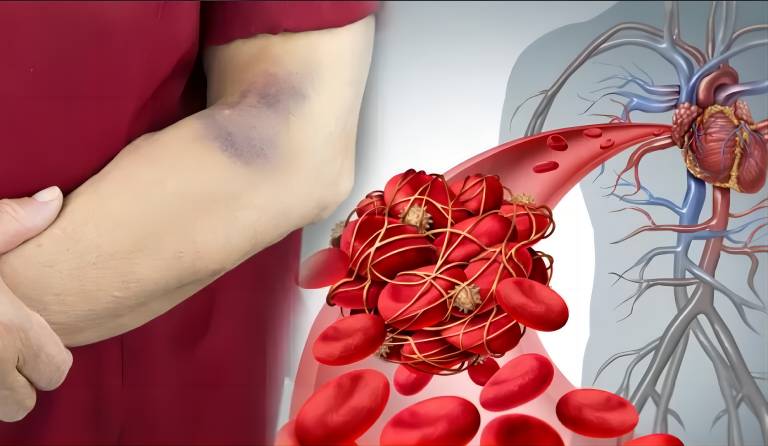
Choosing Between Pradaxa and Dabigatran Etexilate Mesylate
The decision of whether to use Pradaxa or generic dabigatran etexilate mesylate should be a collaborative effort between you and your doctor. Here are some key factors that will influence this choice:
1. Individual Medical Factors: Your doctor will carefully evaluate your medical history, including any existing medical conditions you may have. Certain medical conditions may make you a better candidate for one medication over the other. For example, if you have a history of kidney problems, your doctor may need to adjust the dosage or even choose a different medication altogether. Additionally, your doctor will consider all other medications you are currently taking. Some medications can interact with Pradaxa or dabigatran etexilate mesylate, affecting their effectiveness or increasing the risk of side effects. Your doctor will assess any potential interactions and choose the medication that offers the most optimal benefit with the least risk.
2. Insurance Coverage: Insurance companies may have different coverage policies for brand-name medications (like Pradaxa) and generic medications (like dabigatran etexilate mesylate). It’s important to understand your specific insurance plan and any associated out-of-pocket costs for each medication. Some plans may require a higher co-pay for Pradaxa compared to generic dabigatran etexilate mesylate.
Your doctor’s office or pharmacist can assist you in understanding your insurance coverage details and potential cost differences between the two medications.
3. Patient Preference: While the final decision rests with your doctor based on your medical needs, you may have a preference for one medication over the other. Some patients may feel more comfortable with a brand name medication like Pradaxa due to familiarity or past experiences with the medication. Discussing any preferences you have with your doctor openly and honestly is important for shared decision-making. Your doctor can address any concerns you may have and explain the reasoning behind their recommendation.
By considering these factors collaboratively with your doctor, you can make an informed choice about whether Pradaxa or generic dabigatran etexilate mesylate is the most suitable medication for your specific situation.
Important Considerations When Taking Pradaxa/Dabigatran Etexilate Mesylate
Pradaxa/dabigatran etexilate mesylate is a powerful medication that can significantly reduce the risk of blood clots. However, it is essential to be aware of some key points:
- Bleeding Risk: As with all anticoagulants, Pradaxa/dabigatran etexilate mesylate increases the risk of bleeding. This can range from minor events like nosebleeds or bruising to more serious internal bleeding. It’s crucial to inform your doctor about any history of bleeding problems or conditions that may increase bleeding risk (e.g., ulcers, recent surgery).
- Medications and Supplements: Certain medications and supplements can interact with Pradaxa/dabigatran etexilate mesylate, affecting its effectiveness or increasing bleeding risk. It’s vital to disclose all medications and supplements you are taking, including over-the-counter drugs and herbal remedies, to your doctor before starting Pradaxa/dabigatran etexilate mesylate.
- Laboratory Monitoring: In some cases, your doctor may order blood tests to monitor the effects of Pradaxa/dabigatran etexilate mesylate. These tests do not directly measure the medication’s level in the blood but rather assess how well your blood is clotting.
- Dietary Considerations: While no specific dietary restrictions are necessary with Pradaxa/dabigatran etexilate mesylate, some foods and beverages can affect how your body absorbs the medication. Significant changes in vitamin K intake, found in green leafy vegetables, may require dosage adjustments. It’s advisable to discuss any dietary concerns with your doctor.
- Medical Procedures: If you require any medical or dental procedures, inform your doctor or dentist that you are taking Pradaxa/dabigatran etexilate mesylate. In some cases, your doctor may need to temporarily adjust your medication dosage or advise stopping it briefly before procedures that carry a bleeding risk.
- Following Your Doctor’s Instructions: It’s crucial to take Pradaxa/dabigatran etexilate mesylate exactly as prescribed by your doctor. This includes taking the correct dosage at the appropriate intervals and not skipping or stopping the medication without consulting your doctor. Abruptly stopping Pradaxa/dabigatran etexilate mesylate can significantly increase your risk of blood clots.
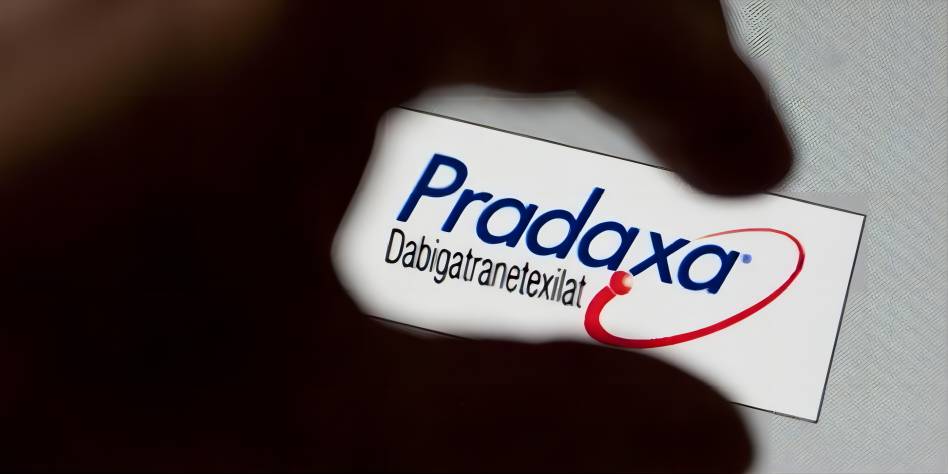
Potential Side Effects of Pradaxa/Dabigatran Etexilate Mesylate
Like all medications, Pradaxa/dabigatran etexilate mesylate can cause side effects. The most common side effect is bleeding, as discussed previously. Other potential side effects include:
- Indigestion or upset stomach
- Diarrhea
- Headache
- Back pain
- Difficulty swallowing
These side effects are usually mild and may improve over time. However, if you experience any severe or persistent side effects, it’s important to contact your doctor.
Conclusion
Pradaxa (dabigatran etexilate mesylate) is a medication used to prevent blood clots in specific situations. Understanding the mechanism of action, potential uses, and crucial considerations for taking this medication is essential for patients and caregivers. While Pradaxa and generic dabigatran etexilate mesylate offer the same therapeutic effect, there may be slight variations in cost, availability, and dosage forms. The decision of which medication to use should be made in consultation with a doctor, considering individual needs and insurance coverage.
It’s important to remember that Pradaxa/dabigatran etexilate mesylate is a powerful medication, and it’s crucial to be aware of the increased bleeding risk and potential interactions with other medications and supplements. Following your doctor’s instructions carefully and reporting any concerning side effects is vital for the safe and effective use of this medication.

